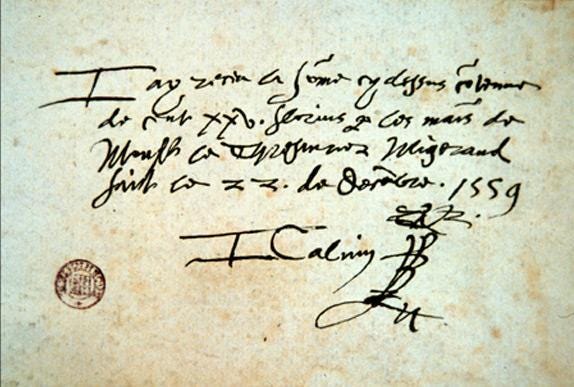by Brad Isbell
Thesis: No confessional presbyterian church will long remain confessional or presbyterian if it loses Reformed worship.
First, some definitions:
Confessional: orthodox soteriology and doctrine (doctrine of God, Christology, covenant) according to the Reformed confessions
Presbyterian: government by ordained male (per scripture) elders organized in accountable, graded courts
Reformed worship: scripturally regulated (RPW), simple, ordinary means of grace worship—a Reformed bucket to carry Reformed water.
Why will unscriptural, man-centered, culturally conditioned, over-contextualized worship undermine confessional orthodoxy? Because worship by its very form (which ought to be according to spirit—uppercase and lowercase— and truth) communicates certain things about the nature of God and man, thus theology proper and anthropology can’t help but be warped by unbiblical worship. Theology proper and biblical anthropology are the foundations of soteriology, which will also be warped by unbiblical (e.g.: revivalist or sacerdotal) worship.
Why will unscriptural, man-centered, culturally conditioned, over-contextualized worship undermine biblical, presbyterian church government? Because free-form, optional, variable worship forms suggest free-form, optional, variable ecclesial forms…or little form at all. And when worship is no longer led by ordained elders, government by ordained elders seems less plausible. Presbyterian order is not hierarchical, but neither is it excessively horizontal. Rolling it out too thin leads to its disintegration.
The regulative principle of worship suggests and bolsters a regulative principle of everything for the church. Doctrine, order, and doxology are a three-legged stool. When present and sturdy, these legs will bear great weight; when any are missing or compromised, collapse is imminent.
Calvin would seem to agree with this thesis according to his famous statement about worship and soteriology in “The Necessity of Reforming the Church” (admittedly written before the presbyterian government was fully developed):
If it be inquired, then, by what things chiefly the Christian religion has a standing existence amongst us, and maintains its truth, it will be found that the following two not only occupy the principal place, but comprehend under them all the other parts, and consequently the whole substance of Christianity: that is, a knowledge, first, of the mode in which God is duly worshipped; and, secondly, of the source from which salvation is to be obtained. When these are kept out of view, though we may glory in the name of Christians, our profession is empty and vain. After these come the sacraments and the government of the church, which, as they were instituted for the preservation of these branches of doctrine, ought not to be employed for any other purpose; and, indeed, the only means of ascertaining whether they are administered purely and in due form, or otherwise, is to bring them to this test. If anyone is desirous of a clearer and more familiar illustration, I would say, that rule in the church, the pastoral office, and all other matters of order, resemble the body, whereas the doctrine which regulates the due worship of God, & points out the ground on which the consciences of men must rest their hope of salvation, is the soul which animates the body, renders it lively & active, and, in short, makes it not to be a dead and useless carcass.
As to what I have yet said, there is no controversy among the pious, or among men of right and sane mind.
(Note: The sacraments properly figure in both the ecclesiology/order and doxology categories.)
Ultimately, worship is just more important than we often assume it to be. Calvin was right to place it (at least once) before doctrine/soteriology.
Calvin knew that reforming worship wasn’t easy or ever would be. Semper reformanda is not a license for innovation but implies that we always have to claw back what carnality tears away from the church:
I know how difficult it is to persuade the world that God disapproves of all modes of worship not expressly sanctioned by his word. The opposite persuasion which cleaves to them, being seated, as it were, in their very bones and marrow, is, that whatever they do has in itself a sufficient sanction, provided it exhibits some kind of zeal for the honor of God. But since God not only regards as fruitless, but also plainly abominates, whatever we undertake from zeal to his worship, if at variance with his command, what do we gain by a contrary course? The words of God are clear and distinct, “Obedience is better than sacrifice.” “In vain do they worship me, teaching for doctrines the commandments of men,” (1 Sam. 15:22; Matt. 15:9). Every addition to his word, especially in this matter, is a lie. Mere “will worship” (ethelothreeskeia) is vanity. This is the decision, and when once the judge has decided, it is no longer time to debate.





Brad, I wonder if you could define "culturally conditioned" as used in your article. Would it be your understanding that Reformed worship is not culturally conditioned at all?
Could you also define "over contextual"? Is there a standard to measure contextualization that we can determine whether a worship service is too contextual? If so, what is that standard of measurement?
Also, given your picture of Calvin with a guitar (awesome picture by the way!) would you argue that the use of guitars or drums violates Reformed worship?
I love that word - soteriology - is that a derivation from sotted?